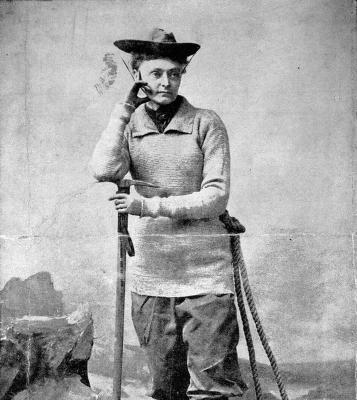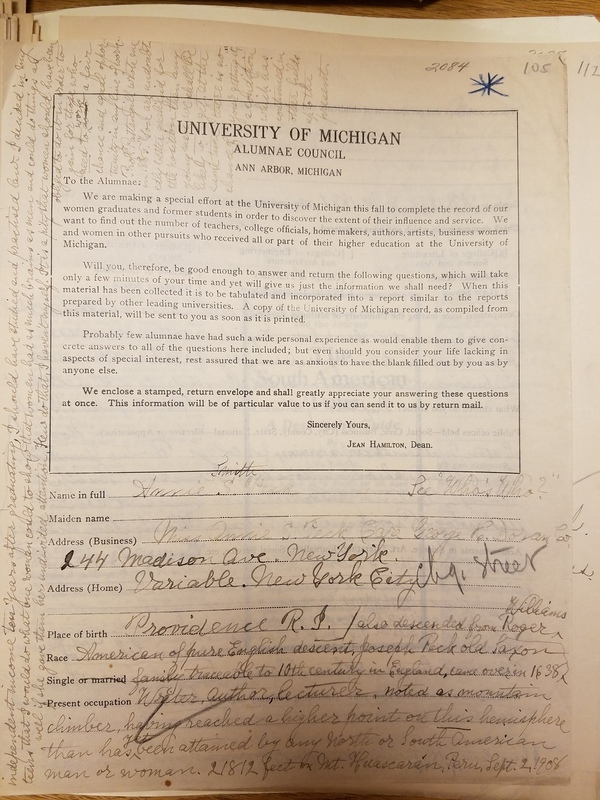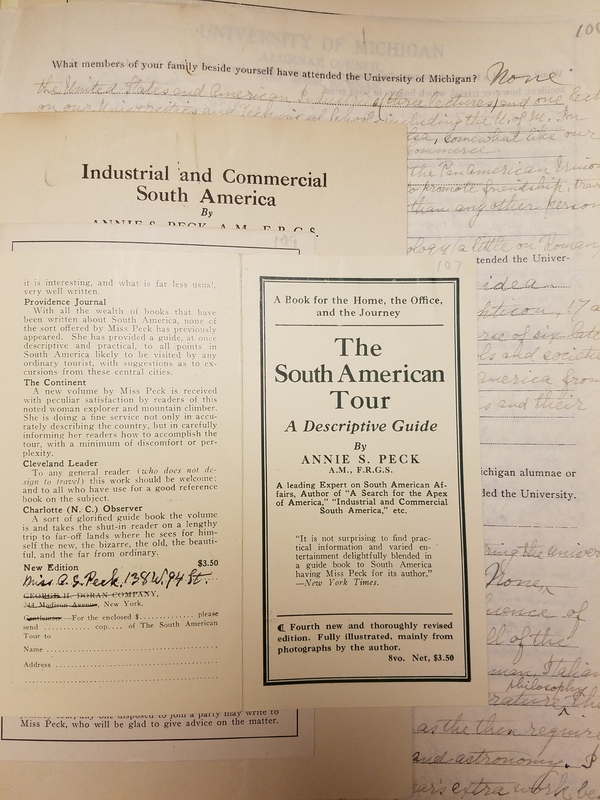The Alumnae Surveys and Annie Peck
In 1924, the Alumnae Council mailed out over 10,000 surveys to women who attended the University of Michigan between the years of 1870 and 1924.1 The purpose of this survey was twofold: to gain a "broader understanding of the accomplishments of the alumnae," and to raise funds for the Michigan League building (then known as the Women's Building).2 The surveys contained a message from then-Dean of Women Jean Hamilton along with a paragraph asking for participation in the surveys. Today, the Bentley Historical Library has over 3,000 of the completed surveys within its archives, each containing information about some of the many fascinating women who attended the University.
A collection of excerpts of these surveys are compiled in a book entitled Women's Voices: Early Years at the University of Michigan, edited by Doris E. Attaway and Marjorie Rabe Barritt and published with the assistance of the Bentley Historical Library. The book contains excerpts of the thousands of women who responded to the surveys, organized in terms of subject and time period. The women discuss their careers, their accomplishments, their role models, their families, and so much more.
One woman who stands out is Annie Peck, who attended the University as both an undergraduate and a graduate student. While many women answered the survey questions briefly and concisely, Peck chose another route. Peck's responses filled the entire document, showcasing her personality.
The words chosen to describe Peck's accomplishments within Women's Voices were as follows:
Annie Peck was frequently mentioned on the list of outstanding women submitted by the alumnae. Her accomplishments were many and varied. She taught (primarily mathematics, Greek, and Latin) at preparatory schools and later at both Purdue University and Smith College. She lectured for some years on Greek Archaeology; she also lectured on the United States and American industries in the chief cities in South America. She was the author of three books about South America, as well as magazine and newspaper articles. Peck was an accomplished mountain climber, having reached the highest point on the hemisphere that had been attained by any North or South American man or woman (21,812 feet on Mt. Huarscaren, Peru on September 2, 1908).3
In the words of Peck herself, "I decided in my teens that I would do what one woman could to show that women has a much brains as men and could do things as well if she gave them her undivided attention. Few do that, I haven't myself. It is a pity that women should have been obliged to do it in order to gain for those who need to work a fair chance and equal opportunity in any line of work."4
She included brochures about her travels and her publications tucked inside of her completed survey.
1. Doris E. Attaway and Marjorie Rabe Barritt, eds., Women's Voices: Early Years at the University of Michigan (Ann Arbor: University of Michigan Press, 2000).
2. Ibid.
3. Ibid.
4. Annie Peck Response, Michigan University Alumni Association, Box 110, Bentley Historical Library, University of Michigan.



